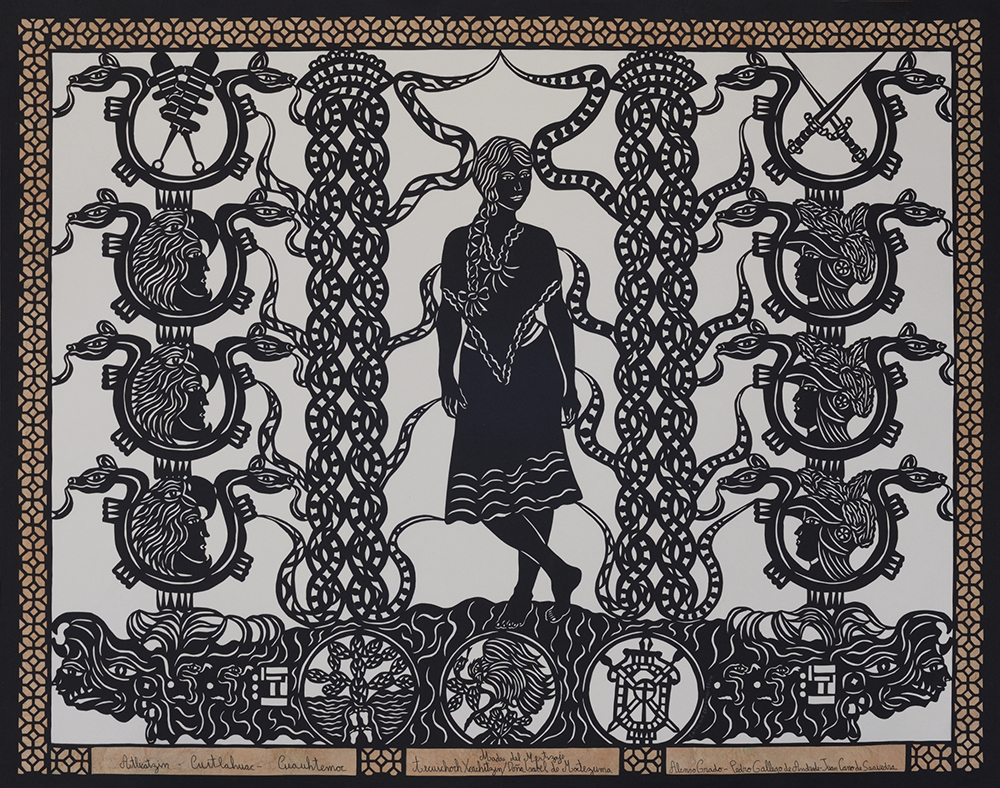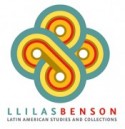
Catalina Delgado-Trunk Papers
BY DANIEL ARBINO
God, greed, and glory. These values propelled a cataclysm in Tenochtitlan of never-before-seen proportions when Spaniards entered the heart of the Mexica empire with conquest on their mind in 1519. A world was turned upside down, and in its instability and violence emerged a new figure: the mestizo. Catalina Delgado-Trunk’s Tecuichpoch/Doña Isabel de Moctezuma—Madre del Mestizaje highlights the painful cultural mixing of Indigenous and European cultures through the body of Tecuichpoch Ixcaxochitzin, or Isabel Moctezuma. The daughter of Moctezuma II, Mexica ruler during Cortés’s arrival, she had six husbands in her life. Delgado-Trunk refers to these husbands on both sides of the papel picado piece: three Mexica on the left, three Spaniards on the right. Isabel was believed to have been widowed three times by the age of sixteen, the three men dying from either smallpox or in defense of their empire. Her fourth, fifth, and sixth husbands were all Spaniards, which, coupled with her royal Aztec blood, gave her some social clout. However, her status also demanded that she convert to Christianity, be baptized as Isabel, and serve as a model of assimilation. Due to these marriages, and the offspring from them, the artist argues that mestizaje in Mexico often played out arduously on the Indigenous woman’s body. At the bottom, there are three coats of arms: one referring to the Mexica on the left, another to the Spaniards on the right, and in the middle, the symbol of modern Mexico, the mestizo nation. Isabel’s central position in the piece speaks to her role in mestizaje, desired or otherwise. Though her social status justified the Dukedom of Moctezuma de Tultengo title in Spain, little is known about Tecuichpoch Ixcaxochitzin, a reflection of the double marginalization of an Indigenous woman in New Spain.
This is a recent acquisition for the Benson and I like using it for archival show-and-tells because it is a visually stunning piece that encapsulates an important moment in history with an Indigenous woman as its subject. In that sense, Delgado-Trunk’s recovery work offers a good counterweight to some of the male-driven narratives of that era.
Daniel Arbino is head of collection development at the Benson Latin American Collection.
IN HONOR OF THE CENTENNIAL of the Benson Latin American Collection, staff members submitted short descriptions of some of their favorite items in the collection.


